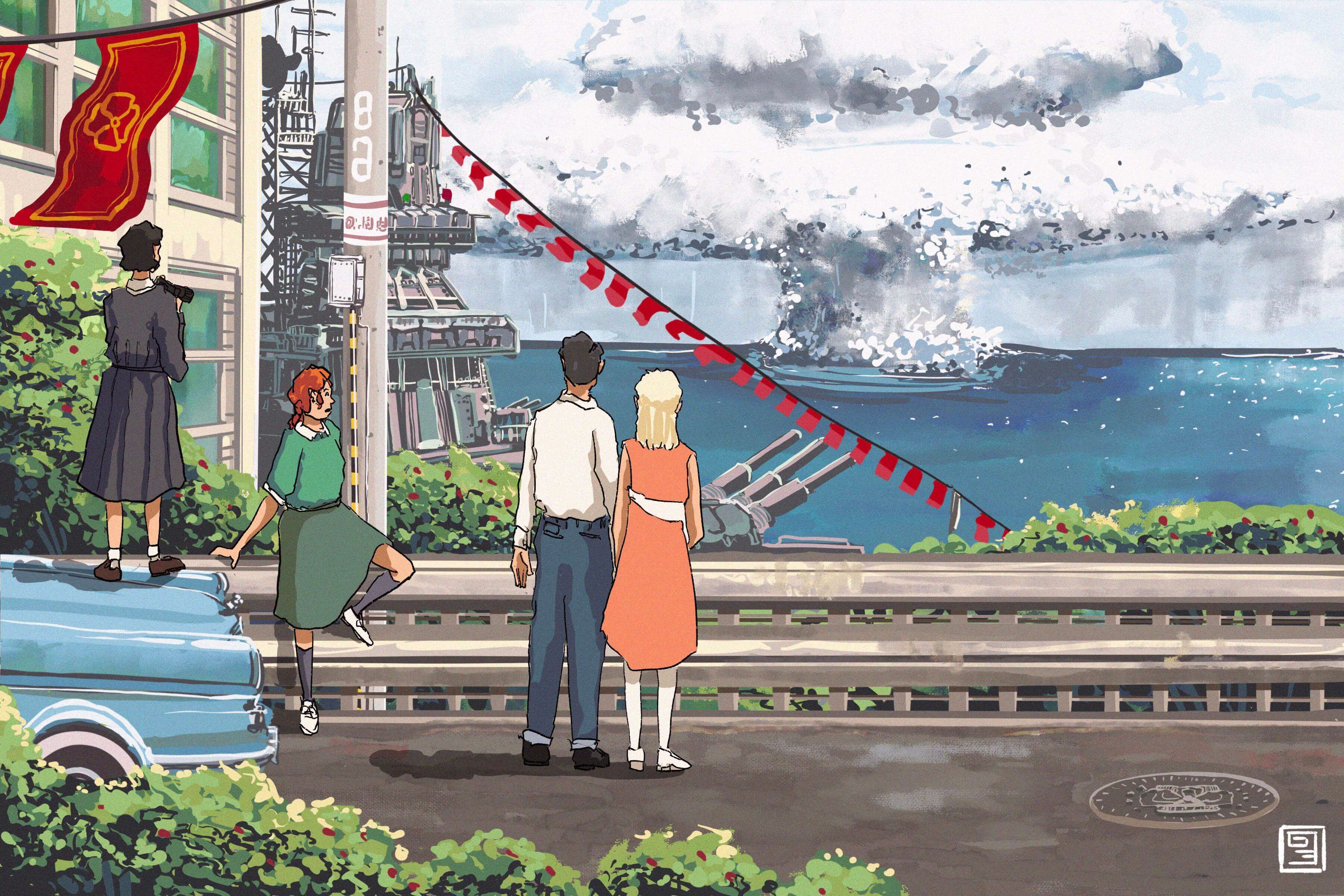NEW Story: Cocktail
Fission Cloud at Vekllei's 50th Anniversary

This article is not part of Vekllei canon. It may be old, obsolete or just a bit of fun.
✿ This article was featured in Issue #1 of the Atlantic Bulletin
In an unprecedented event, during Vekllei’s 50th Sea Festival since Independence in 2065, an 8 kiloton fission bomb was sunk to a depth of 150 meters and detonated at midday. It was an incredible sight on a day so clear you could see the gentle curve of the earth where it met the horizon. A flash of light and a spray dome surged outwards into the quiet Atlantic, which was broken apart by plumes that formed a column of water that climbed high into the sky. The lateral plumes, the “mushroom”, reached far across the horizon, forming thick clouds that would begin to rain into the sea. From the coast, fifteen kilometres away, a warm light bathed observers and was followed a moment later by a bang that deeply shook you and those around you. In this instance it seemed that the whole universe was their domain.
The plume would rise nearly 1,500 metres into the sky before falling away. It stayed that way for a while. Almost nobody moved for a long time after — people stood on cars and tables. You could only recognise the scale and the feeling of the fission bomb by seeing it in person.
It seemed incomprehensible, in the face of such a device, that wars could still be fought at all. What use is a battleship in the face of a cloud like that?
Tzipora and Elise, covering the detonation for Lola 7th School’s student newspaper, found themselves not quite sure what to say. Elise wrote, captioning Tziproa’s photograph, “The Independence bomb filled our sky with our sea for a half-hour on Sunday, and with it rose the thoughts of every person in attendance, who considered the awesome power now shouldered by each of us.”
There was indeed some sense that they had contributed to the bomb, and that they had more at their disposal. Few would fly the planes to deliver them, and fewer still had the brains to develop them, but participating in a nuclear century contributed to, in some effect, a nuclear horizon.
